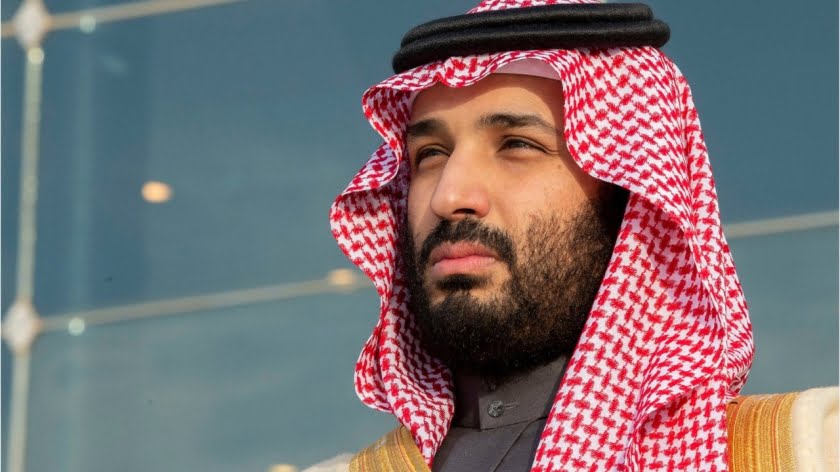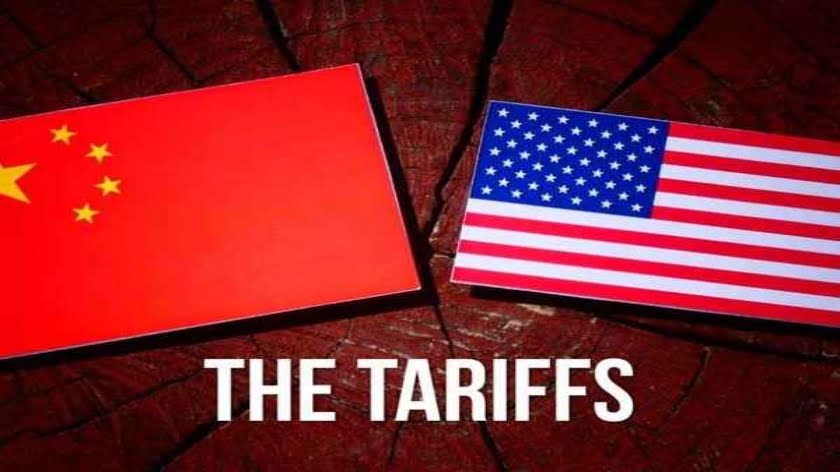The Idea of Replacing the US Contingent in Syria with Saudi Troops is Doomed to Failure
The White House has had a hot new idea – to leave Syria but also stay there at the same time by deploying an Arab contingent to US military bases, primarily from the Kingdom of Saudi Arabia (KSA). So to Arabize one of the bloodiest wars of our time in keeping with the bitter memory of Vietnamization.
It seems that the plan was worked out during the almost month-long stay of Saudi Arabia’s defence minister, Crown Prince Mohammed bin Salman, in America. And the plan’s existence was announced on 17 April by Saudi Arabia’s foreign minister, Adel al-Jubeir, during a joint press conference with the UN secretary general, António Guterres. Following the missile attack on Syria, the White House press secretary, Sarah Sanders, reiterated that President Donald Trump still wants an early withdrawal of US troops from the country. The introduction of a Saudi contingent in their place seems to Washington to be in the interests of the United States. And the US government has not just suggested to Saudi Arabia that it replace the American contingent, but to Qatar and the United Arab Emirates as well. They would take a back seat to the Saudis, however. There is also talk of these regimes providing money to rebuild Syria’s destroyed north. It seems they wouldn’t just be counting on military force, but on “buying” the local population as well.
It does raise a question, of course: have the Americans asked the Syrian government or its own allies – the Kurds and, at the very least, Turkey, Russia and Iran – about the desirability of such a replacement? No, of course they haven’t. Even while withdrawing, the US is unable to forget about its “exclusivity”. For many reasons, however, the idea of replacing Americans with Arabs is doomed to failure.
That Damascus will resolutely resist the proposed reoccupation of its territory by the forces of a “fraternal country” is obvious. It can only lead to more fighting and a rise in regional tensions. Almost as well-equipped as the Americans, the Saudis will never be a worthy opponent of the battle-hardened Syrian army. They have already shown what they’re capable of in the endless war in Yemen, where barefoot Houthis are inflicting one embarrassing defeat after another. Riyadh’s intention to fight a “decisive battle” against Iran on foreign soil will not be realised, either. With its ally Iraq behind it, Tehran would soon have the advantage.
All in all, not a single one of Syria’s neighbours is in favour of the arrival of Saudi troops to replace the Americans except Israel. Iraq is categorically against the idea, since it wants to avoid having to deal with an upsurge in fighting between Sunnis and Shi’ites on its borders. Turkey has no need for the Saudis either, because they would undermine its influence in the Ankara-controlled area of northern Syria. Suffice it to say that the nearly 30,000 troops now under Turkey’s wing from Eastern Ghouta, which was recently liberated by government troops, have been on Riyadh’s payroll for the entire war. Turkey has every reason to fear that Saudi Arabia will use these and other groups to assert its dominance over the area. Libya is also against the appearance of Saudi Arabia on the Syrian stage, fearing that clashes between Sunnis and Shi’ites will move to within its own borders. Even Jordan, which is dependent on Washington and London, is weary of the initiative. As a pragmatic politician, King Abdullah II of Jordan has a good idea of all the possible negative repercussions of such an undertaking.
The proposals have also been criticised by Egypt, which has completely ruled out its involvement in their realisation. Mohammad Rashad, a senior official in Egypt’s General Intelligence Directorate, expressed himself in no uncertain terms: “The Egyptian Armed Forces are not mercenaries and cannot be leased or ordered by foreign states to deploy in a certain area.” Rashad continued: ““This is not acceptable. No one should dare to direct or give orders to Egypt’s army.” The statement is an indirect response to an appeal by the US president’s new national security advisor, John Bolton, to the head of Egypt’s intelligence services, Abbas Mustafa Kamil, inviting Cairo to be involved in the project.
Just as many problems await the Saudis in and around the area of their proposed location. To begin with, the Kurds from the Syrian Democratic Forces (SDF) who control the area with the help of the US will certainly not welcome their arrival. It would mean the Kurds giving up control of the local Arab population in favour of the incoming contingent and losing most of the power they have won. It is quite possible that the Americans are secretly pushing for a scenario in which, as well as Arabization, there will also be a “dekurdization” of northern Syria, but at someone else’s hands. Then it would seem as if they are not betraying the Kurds, while calming Arab national feelings and ironing out differences with the Turks at the same time. Don’t think that the Kurds will remain passive bystanders in this situation, however. Chances are they will occupy the vacated US bases and refuse to let anyone in. It is even possible they will finally realise that, in the current situation, the most sensible course of action to resolve the Kurdish national question would be an alliance with Damascus. For the time being, Damascus is prepared to extend the rights of Kurds, but should they find themselves on the losing side later on, their window of opportunity will gradually close.
And for Saudi Arabia, a direct clash with the Islamic State (IS), which, according to the official version, is the terrorist group that the Saudis must go to Syria to fight, could prove fatal. The truth is that many of the IS militants still fighting in Syria are mujahideen from Saudi Arabia and their ability to indoctrinate their fellow countrymen should not be underestimated. It could happen that any direct contact between the Saudi contingent and IS militants will eventually extend the latter’s influence to the Kingdom, something that the Islamic State has long dreamed of. In the countries of the Persian Gulf, there are already some who think it would perhaps be better to hire Sudanese nationals, Pakistanis or some other poor souls for the operation.
The new plan for America to save face in the Middle East is just as chimerical as all of America’s previous attempts at a global reorganisation of the region. The outcome of Arabization will not be any better than the outcome of Vietnamization was all those decades ago. And this will continue to be the case until Washington starts taking into account the positions of all interested parties, including Damascus.







